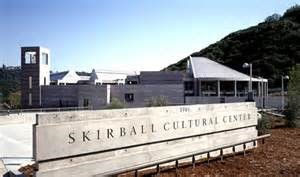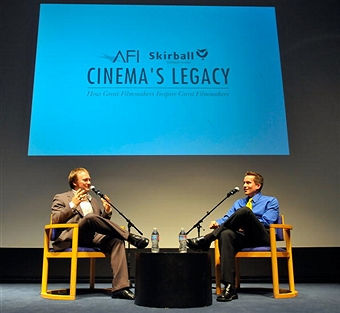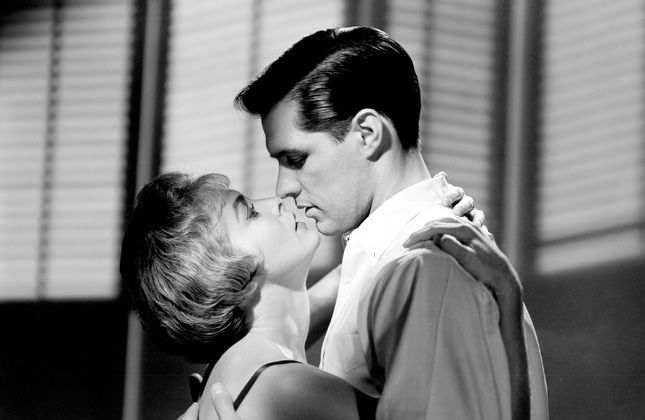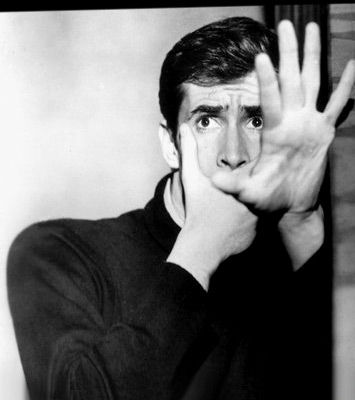Hitchcock’s Psycho Free at the Skirball
- Carrie Specht
- Jan 6, 2007
- 4 min read

Once again the Skirball Cultural Center is offering a free screening and this time it’s Alfred Hitchcock’s notorious Psycho, playing Tuesday, January 9 at 1:30pm. Although the shock value of the then titillating storyline has lost its impact over the years, the performances and overall entertainment of the movie have not faded in the least.
If you’re not familiar with The Skirball Cultural Center, you should know that it’s a wonderful resource for screening classic cinema. I happened to have stumbled upon it a few months ago via an Internet search. One doesn’t necessarily think of a museum as a venue for a movie going experience, but in actuality, many museums in the Los Angeles area (the LACMA, The Gene Autry Western Heritage Museum, etc.) offer special or ongoing programs celebrating the art of the moving image and its cultural impact.

The Skirball itself has an ongoing practice of screening great American classic cinema, and often for free. To paraphrase their website, the Skirball Cultural Center has established itself as one of the world’s most dynamic Jewish cultural institutions, and is considered among the most prominent cultural venues in the United States. Its mission is to explore and celebrate the connections between Jewish heritage and American ideals. In doing so, the center aspires to encourage and embrace every ethnic and cultural identity in American life. The goal is to build a society in which all people can feel at home. Presenting multi-culturally appealing cinema is a stroke of genius.

This week’s offering is perhaps Alfred Hitchcock’s most recognized movie, Psycho, which is the absolute forerunner to all the many psychopathic killer films to follow. Hitchcock had delved into the subject years earlier with Spellbound, but with psychology playing a healing factor to the disturbed and damaged mind of a capable young man. In this earlier venture, it turns out that the strong and hunky Gregory Peck is suffering from severe shock, and is nursed back to health by a loving and mothering Ingrid Bergman (one of Hitchcock’s rare ‘warm’ blondes). With Psycho, Hitchcock uses the mothering factor to represent repression and denial, pushing the smothered child into a world of delicate neurosis. And the beautiful female is not a positive influence, but a degrading one; a common little work girl who has an affair and robs her employers. An instigator of disturbance wherever she goes, she is denied any chance at retribution and deemed deserving of her unfortunate outcome. These are the rules that horror films forever hence do follow.

Janet Leigh (mother of Jaime Leigh Curtis) plays Hitchcock’s requisite, icy, beautiful blond who finds herself in trouble. Leigh impulsively absconds with the company funds in order to run away with her cash-strapped lover, the square-jawed John Gavin. Before she can meet the dark haired Adonis, the shapely thief is forced to make a pit stop due to bad whether, and encounters a very young and awkward hotel clerk named Norman (Anthony Perkins). Other than peepholes and taxidermy to pass the time, Norman has fostered a close relationship with his demanding mother.
While waiting out the storm, Leigh reconsiders her actions. But before she can do anything about her regrets, she is brutally attacked in the shower in what is probably the most sudden and stunning turn of events in cinematic history (at least until years later when The Crying Game would strongly challenge that distinction). Anthony Perkins gives an eerily believable performance as the highly-strung man who desperately cleans up the bloody act he presumes to be performed by his strict and domineering mother.

Unbeknownst to the oddly and immensely appealing neurotic (a true testament to Perkins ephemeral charm), there are many people looking for the missing woman, including her lover, her sister, and a private detective. Inundated with inquisitive visitors, poor Norman becomes more and more muddled, desperate to keep secret the involvement his mother may (or may not) have had in the situation. Ultimately, Norman’s secret and the film’s final twist (now a horror film staple) are revealed to his dire consequence. It’s fair to say that as much as the famed shower scene has become identified as a pinnacle moment in the annals of filmmaking history, the final shot of the film (NO! I’m not going to ruin it for anyone who hasn’t seen it) remains just as recognizable a pure Hitchcockian image as any other within the great filmmaker’s career.

The small, but excellent cast includes Martin Balsam (Twelve Angry Men), John Gavin (Imitation of Life), Janet Leigh (The Manchurian Candidate), Vera Miles (The Searchers), and Anthony Perkins in his seminal role, influencing the depiction of cinema’s psychopaths ever after. The creative forces at work to create this icon of cinematic history received multiple Academy Award nominations, including Best Supporting Actress for Janet Leigh, Best Director for Alfred Hitchcock, Best Cinematography in Black and White (when they still made such a distinction) for John L. Russell, and Best Interior Decoration in Black and White (also a long past category).
